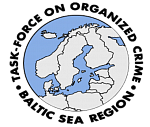Foreign Ministry statement in connection with anniversaries in Russia-NATO relations
These days we will mark 20 years of the Founding Act on Mutual Relations, Cooperation and Security, which Russia and NATO signed in Paris on May 27, 1997, and 15 years of the declaration titled Russia-NATO Relations: A New Quality, which was adopted at the Russia-NATO summit meeting in Rome on May 28, 2002.
We have to point out that Russia-NATO relations are the worst they have ever been since the end of the Cold War. NATO has unilaterally suspended all practical cooperation projects in the sphere of common interests, which were stipulated in the above mentioned documents and which greatly contributed to European security. While agreeing on the importance of eliminating dividing lines in Europe, Western countries have opted for close-ended NATO-centric security architecture. Furthermore, they have adopted a strategy of containment for Russia, which has directly provoked the growth of the conflict potential in the Euro-Atlantic region.
The actions by NATO to strengthen its “eastern flank” and build up its military presence and infrastructure on the border with Russia are eroding the provisions of the Founding Act, primarily the commitment to “carry out its collective defence and other missions by ensuring the necessary interoperability, integration, and capability for reinforcement rather than by additional permanent stationing of substantial combat forces.” We interpret the forward presence of NATO forces, irrespective of their objectives, as permanent stationing, and it does not matter that personnel will be deployed there on a rotational basis.
We consider the attempts to circumvent the principles of the Founding Act to be dangerous and contradicting the true interests of the NATO states themselves. We see this as the alliance’s intention to give legitimacy to its military preparations in proximity to Russia’s borders, which, taken together with the military activity of some bloc members, are changing the balance of forces in Europe and can provoke a new dangerous round in the arms race.
The quality of European and global security largely depends on relations between Russia and NATO as major military and political factors. The bloc’s efforts to prove its worth by fanning the myth about the “threat from the East” are preventing countries from rallying to fight common threats and challenges.
The growing negative trends are not Russia’s choice. They are a direct result of the destructive policy the bloc has been recklessly waging for years to attain military and political domination in European and global affairs. Attempts to develop relations with Russia in the spirit and with the help of instruments from the era of confrontation must be abandoned before it is too late.
Although the current situation is extremely complicated, we are convinced that if we managed to hold fruitful discussions on the problems during the period of confrontation, we can do the same now when there are no ideological differences between the Euro-Atlantic countries. The main thing is to open one’s eyes to reality, cleanse our interpretation of modern processes of political influences and look into the future not only in the interests of the club of select countries, but all European nations without exception.

